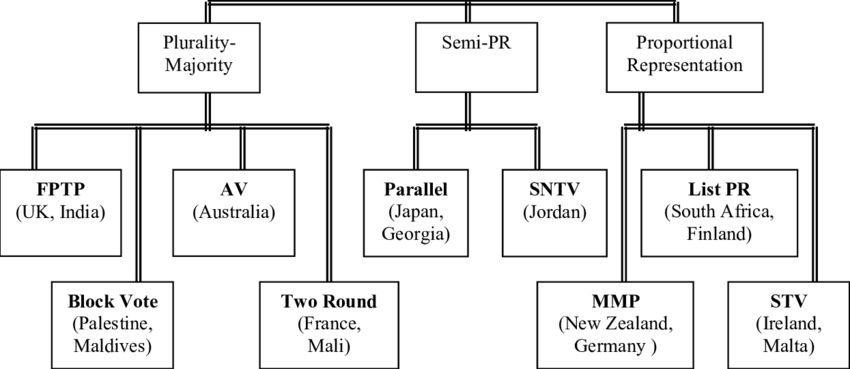Exploring the concept of machine learning and applications
IT service providers use machine learning to extract valuable insights from vast amounts of data this enables to make data-driven decisions.

In today's fast-paced world, technology in machine learning is at the forefront of innovation. Among the many remarkable advancements, one that stands out is Machine Learning (ML). Machine Learning, often abbreviated as ML, is a subset of Artificial Intelligence (AI) that enables computers to learn from data and make intelligent decisions without explicit programming.
It's a game-changer that has the potential to reshape industries across the globe. In this blog post, we'll delve into the concept of Machine Learning and explore its incredible applications, shedding light on its transformative impact on various sectors, including IT services, and the world as a whole.
Understanding Machine Learning
Machine Learning is all about using algorithms and statistical models to enable computers to improve their performance on a specific task through learning from data. The "learning" part involves recognizing patterns, making predictions, and continually adapting to new information. Think of it as teaching a computer to perform a task, but instead of explicitly programming each step, we feed it data and let it figure out how to do it on its own.
At the heart of Machine Learning are massive datasets, powerful algorithms, and computing resources. When a machine learns from these datasets, it can identify trends, correlations, and insights that might be impossible or too time-consuming for humans to discern. This concept is what makes ML so valuable and versatile.
Potential Applications of Machine Learning
Machine Learning is not just a buzzword; it's a transformative force that has found applications in almost every sector imaginable. Here, we'll explore some of the remarkable ways in which ML is shaping our world:
1. Healthcare
Machine Learning has revolutionized the healthcare industry by enabling predictive analytics, personalized medicine, and early disease detection. ML algorithms can analyze patient data, such as medical records, test results, and even genomic information, to provide insights for better diagnosis and treatment plans. For example, ML can predict disease outbreaks, optimize treatment plans, and identify high-risk patients, ultimately saving lives.
2. Finance
In the world of finance, Machine Learning has become indispensable for fraud detection, algorithmic trading, and risk assessment. ML models can analyze vast amounts of financial data in real-time to detect suspicious activities and prevent fraud. Additionally, they can predict market trends and optimize investment portfolios, helping financial institutions make informed decisions.
3. E-commerce
E-commerce giants like Amazon and Alibaba rely heavily on Machine Learning to enhance user experience and drive sales. ML algorithms power recommendation systems, suggesting products to users based on their browsing and purchasing history. This personalized approach not only boosts sales but also improves customer satisfaction.
4. Autonomous Vehicles
Self-driving cars are a prime example of cutting-edge technology fueled by Machine Learning. ML algorithms process data from various sensors, such as cameras and LiDAR, to make real-time decisions while navigating the road. These algorithms continuously learn from driving experiences, making autonomous vehicles safer and more reliable.
5. Marketing
In the marketing world, Machine Learning is a game-changer. It enables businesses to target their audiences with unparalleled precision. By analyzing consumer behavior, ML algorithms can create highly personalized marketing campaigns, resulting in higher conversion rates and ROI.
6. Energy
The energy sector is harnessing the power of Machine Learning to optimize energy production, distribution, and consumption. ML algorithms can predict energy demand, optimize grid operations, and even increase the efficiency of renewable energy sources like wind and solar power.
7. IT Services
Now, let's dive deeper into how Machine Learning is impacting the IT services sector, specifically focusing on World Wide Technology (WWT) and its role in driving innovation.
Machine Learning in IT Services: The WWT Perspective
World Wide Technology, commonly known as WWT, is a leading technology solutions provider that leverages cutting-edge technology to transform businesses. In the ever-evolving landscape of IT services, Machine Learning plays a pivotal role in helping organizations like WWT deliver unparalleled solutions to their clients.
a. Predictive Maintenance
One of the most significant applications of Machine Learning in IT services is predictive maintenance. WWT and similar organizations use ML algorithms to monitor the health of IT infrastructure, including servers, data centers, and networking equipment. By analyzing data such as temperature, power consumption, and performance metrics, predictive maintenance models can predict when equipment is likely to fail. This proactive approach minimizes downtime, reduces costs, and ensures uninterrupted service for clients.
b. Network Security
In an era of constant cyber threats, network security is a top priority for IT services providers like WWT. Machine Learning is instrumental in identifying and mitigating security threats. ML algorithms can analyze network traffic patterns to detect anomalies and potential breaches. They can also adapt and learn from new attack vectors, staying one step ahead of cybercriminals.
c. Data Analytics
Data is the lifeblood of IT services, and Machine Learning is the key to unlocking its potential. WWT uses ML algorithms to analyze vast datasets, extracting valuable insights that drive business decisions. Whether it's customer behavior analysis, trend prediction, or data-driven recommendations, ML-driven analytics empower IT service providers to deliver more value to their clients.
d. Cloud Computing Optimization
As businesses migrate to the cloud, optimizing cloud resources becomes crucial for cost-efficiency. Machine Learning can analyze cloud usage patterns and recommend resource allocation adjustments. This ensures that clients get the most out of their cloud investments while minimizing unnecessary expenses.
The Role of Edge Technology
In the world of Machine Learning, staying at the cutting edge of technology is essential. One of the latest trends in this space is Edge Technology, which complements traditional cloud-based ML. Edge technology involves running ML algorithms directly on devices at the network edge, such as smartphones, IoT devices, and edge servers. This approach offers several advantages:
1. Reduced Latency
Edge technology reduces the time it takes for data to travel from the source (e.g., a sensor) to the ML model and back. This low-latency processing is crucial for applications like autonomous vehicles and real-time industrial control systems.
2. Privacy and Security
Running ML at the edge allows sensitive data to stay local, enhancing privacy and security. Data doesn't need to be sent to a centralized cloud server for processing, reducing the risk of data breaches.
3. Bandwidth Savings
Edge technology reduces the strain on network bandwidth, as data processing happens locally. This is especially valuable in scenarios with limited connectivity, such as remote industrial sites.
Viva Technology: A Glimpse into the Future
To truly appreciate the potential of Machine Learning and cutting-edge technology, we need to look towards events like Viva Technology. Viva Technology is a global tech conference and startup show that showcases the latest innovations and serves as a platform for tech giants, startups, and visionaries to come together.
At Viva Technology, we see firsthand how Machine Learning is shaping the future. Startups and established companies alike present their groundbreaking solutions, demonstrating how ML can tackle some of the world's most pressing challenges. From healthcare innovations to sustainable energy solutions, Viva Technology offers a glimpse into what's possible when technology and human ingenuity converge.
Machine Learning is not just a tool; it's a technological revolution that has the power to reshape industries and improve our lives in countless ways. Whether it's predicting diseases, enhancing financial strategies, or optimizing IT services, ML is the driving force behind cutting-edge solutions.
In the IT services sector, organizations like WWT are at the forefront of leveraging Machine Learning to deliver exceptional value to their clients. Predictive maintenance, network security, data analytics, and cloud computing optimization are just a few examples of how ML is transforming IT services.
Moreover, the integration of Edge Technology into the ML landscape is opening up new possibilities, enabling faster and more secure processing at the network edge.
As we look towards the future, events like Viva Technology give us a glimpse of what's possible when we harness the potential of Machine Learning and embrace cutting-edge technology. The possibilities are endless, and the only limit is our imagination.
In conclusion, the technological revolution powered by Machine Learning is here to stay, and it's up to us to harness its potential for the betterment of our world.
So, let's embrace this exciting era of innovation and continue to push the boundaries of what's possible with cutting-edge technology. The future is bright, and Machine Learning is leading the way.
What's Your Reaction?
















